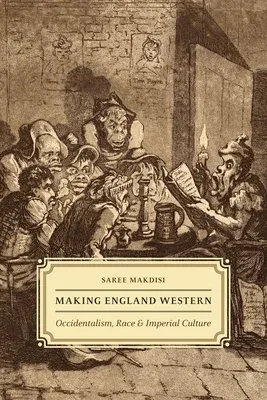The central argument of Edward Said's Orientalism is that the
relationship between Britain and its colonies was primarily
oppositional, based on contrasts between conquest abroad and domestic
order at home. Saree Makdisi directly challenges that premise in Making
England Western, identifying the convergence between the British
Empire's civilizing mission abroad and a parallel mission within England
itself, and pointing to Romanticism as one of the key sites of
resistance to the imperial culture in Britain after 1815. Makdisi argues
that there existed places and populations in both England and the
colonies that were thought of in similar terms--for example, there were
sites in England that might as well have been Arabia, and English people
to whom the idea of the freeborn Englishman did not extend. The
boundaries between "us" and "them" began to take form during the
Romantic period, when England became a desirable Occidental space,
connected with but superior to distant lands. Delving into the works of
Wordsworth, Austen, Byron, Dickens, and others to trace an arc of
celebration, ambivalence, and criticism influenced by these imperial
dynamics, Makdisi demonstrates the extent to which Romanticism offered
both hopes for and warnings against future developments in
Occidentalism. Revealing that Romanticism provided a way to resist
imperial logic about improvement and moral virtue, Making England
Western is an exciting contribution to the study of both British
literature and colonialism.

